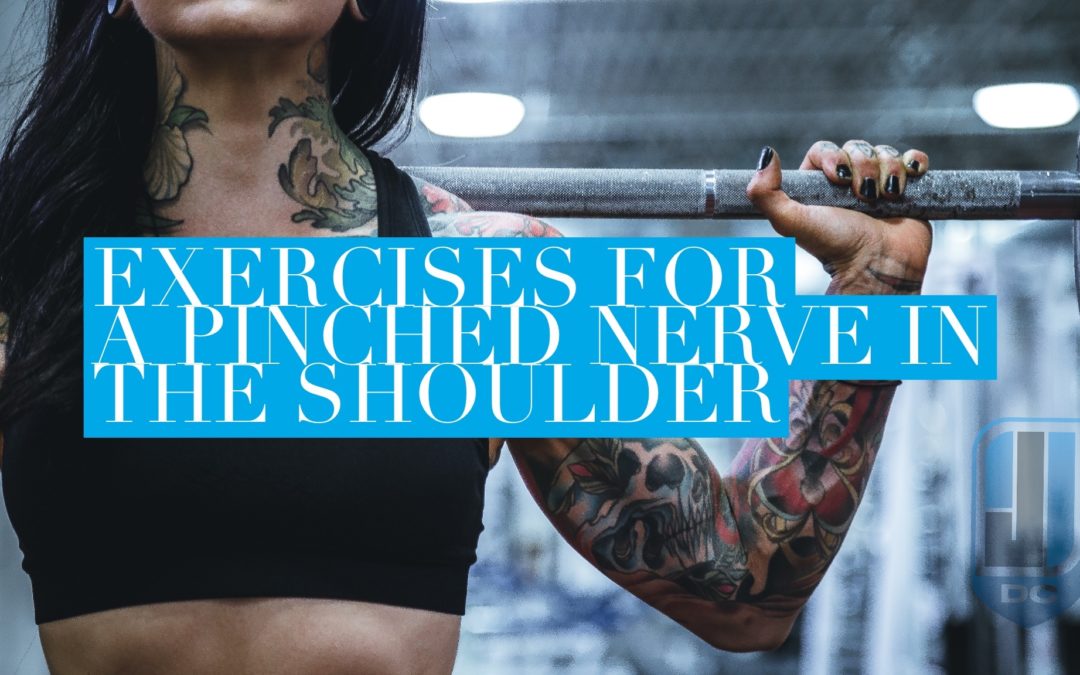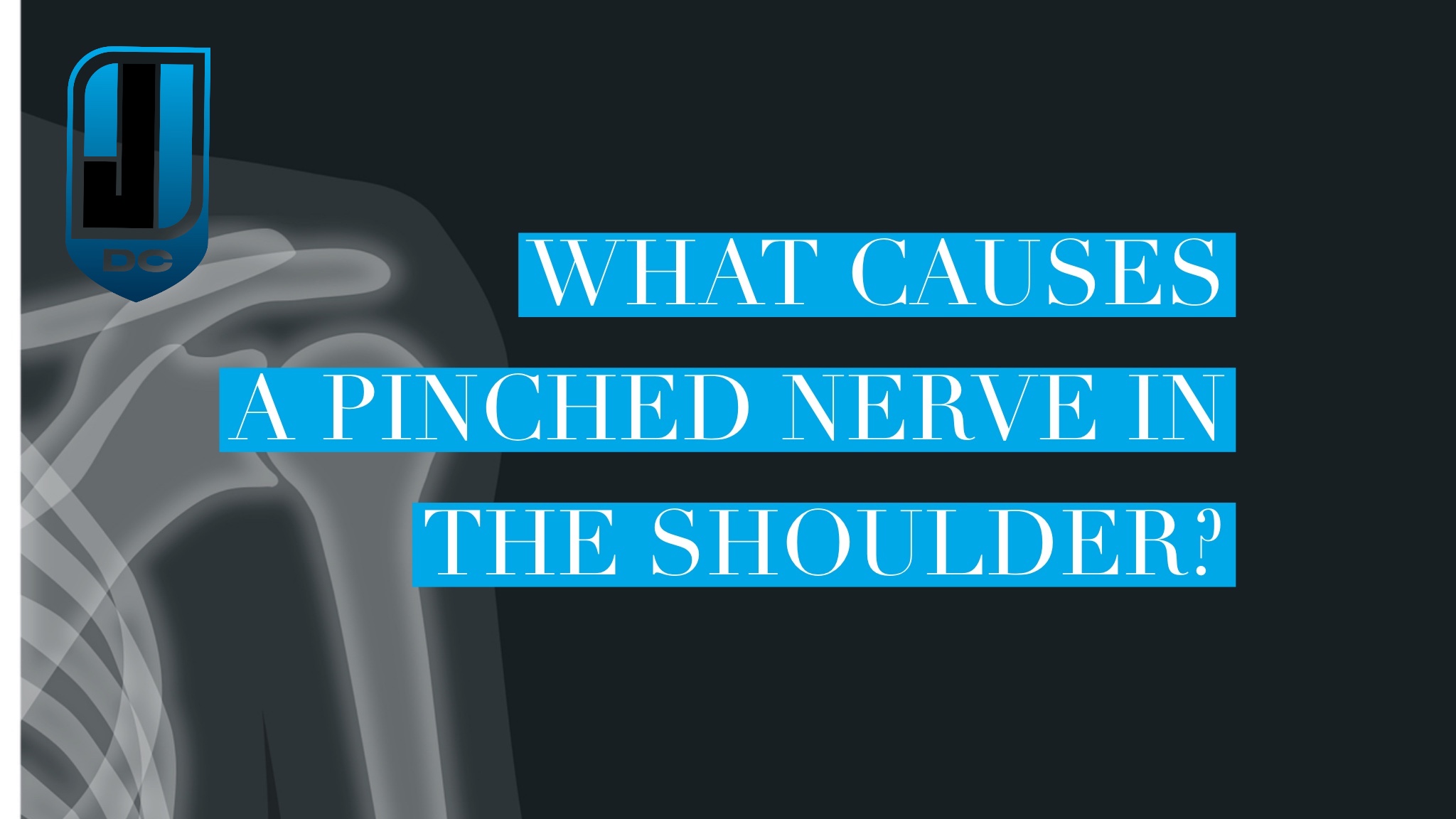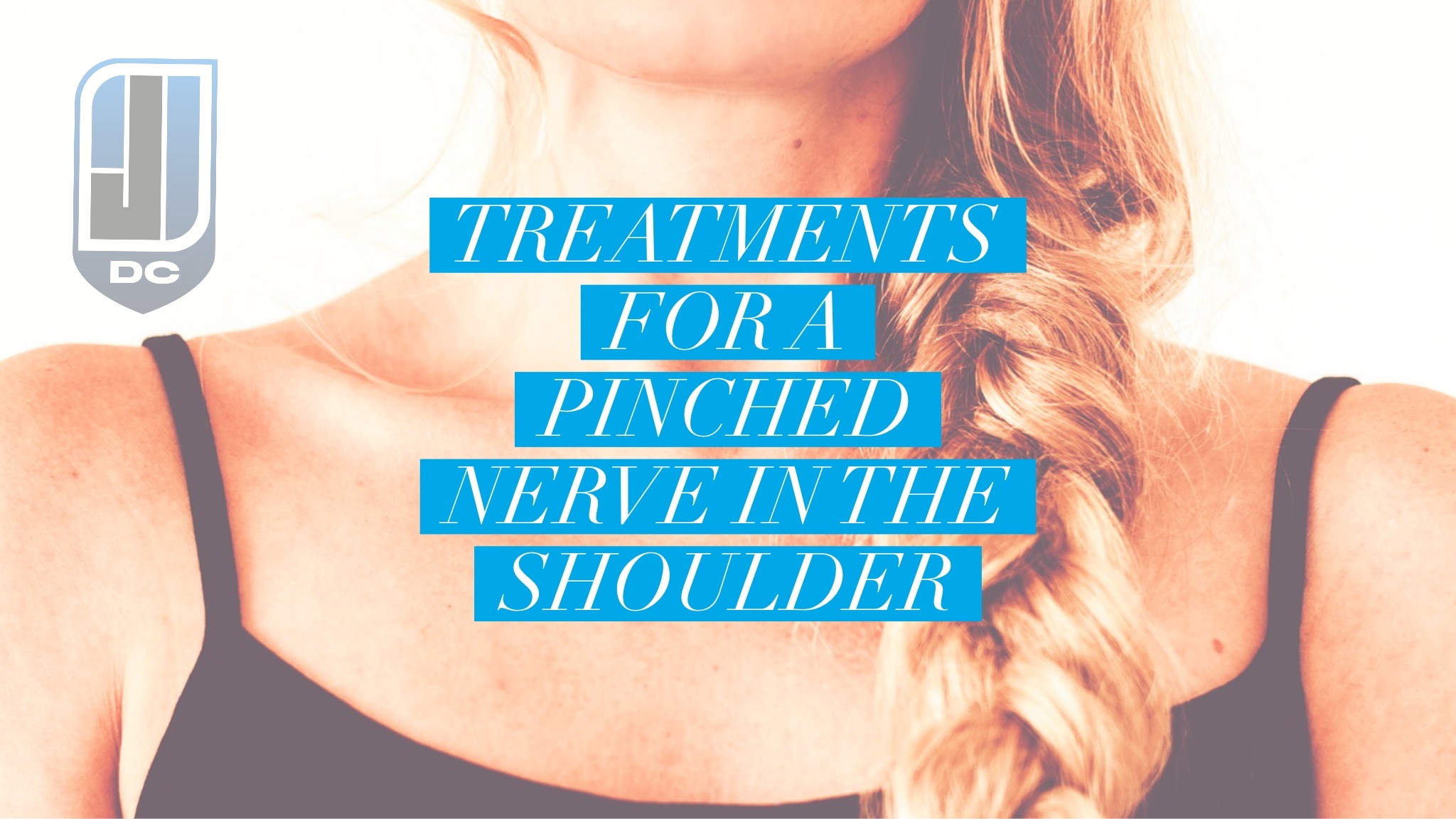Exercises for a pinched nerve in the shoulder can be effective at relieving pain in the shoulder and arm. Not only can exercises provide relief, but they are also important in fixing the problem that is causing pinched nerve pain. Nerve tension and nerve flossing exercises for a pinched nerve in the shoulder are a great home treatment to start with if you’re having pain down your arm. Often times the pain from a pinched nerve will come on slowly and then progress over time to where it becomes extremely painful and nagging. Due to this, trying some home exercises early on is an important first step to try.
Besides exercises, there are home treatments to relieve a pinched nerve in your shoulder. By trying some of these home remedies you may be able to get ahead of your symptoms and keep the pain from getting worse. As a chiropractor who treats pinched nerves in the shoulder frequently, I’m going to give you some tips that I recommend to my patients. However, remember that it’s always smart to see a rehab-focused chiropractor to get examined and treated for these conditions.
If you haven’t read my previous content on pinched nerves, make sure read them and catch up. I try to answer all your questions about the causes and treatment of pinched nerves in the shoulder. You can access them by clicking on the pictures below!
- 3 Things That Often Cause Pinched Nerves in Neck and Shoulder
- What Are Other Causes of a Pinched Nerve in the Shoulder?
- What Does a Pinched Nerve in the Shoulder Feel Like?
- How Do I Know If I Have a Pinched Nerve in My Shoulder or Neck?
- How I Examine a Pinched Nerve in the Shoulder or Neck
Three Exercises for a Pinched Nerve in the Shoulder
There are three exercises for pinched nerves in the shoulder that I typically get my patients started on right away. These are great for you to try because pinched nerves often respond really to home exercises. They’re called nerve glide or nerve flossing exercises.
Nerve glide or nerve flossing exercises help “free-up” and glide the nerve where it may be mechanically compressed near the spine or along its path down the arm. The exercises take a little practice to learn, but once you learn them they often provide immediate improvement in symptoms. Here they are:
- Radial nerve glide
- Median nerve glide
- Ulnar nerve glide
These exercises are named after the nerves that may be affected from a pinched nerve in your shoulder. The radial nerve produces discomfort down the thumb side of the arm. The median nerve produces discomfort down the center of the arm. Ulnar nerve issues will produce discomfort down the inside of the arm. I’ll often give patients 2-3 of them because there is crossover in the area the nerves innervate.
It’s important to know that these exercises aren’t going to get rid of pinched nerve pain in themselves. In a lot of cases they will provide some immediate relief and take the edge off of your symptoms. They are a great place to start, but most patients are going to need some in-office treatment and an exercise progression designed for them.
Struggling with a Pinched Nerve in the Shoulder?
Check out my video where I show you the nerve tension and flossing exercises above!
How to Treat a Pinched Nerve in the Shoulder at Home
You may be wondering if there’s anything you can do to treat a pinched nerve in the shoulder at home. The good news is there are a number of things you can do that often relieve symptoms. Some strategies can even address the cause of the pinched nerve in the shoulder as well. Generally, I make these recommendations for my patients:
- Try using an ice pack, heat pack, or alternating ice and heat for pain relief. I suggest my patients use these treatments for 10-15 minutes at a time a few times a day.
- Avoid postures, positions, movements, and exercises that make pinched nerve pain worse. Every time the area is irritated it contributes to the inflammatory response happening there.
- Do some light stretching, that doesn’t make pain worse, to help loosen up muscles in the area. This can help bring some relief until you go see a healthcare provider.
- Try and get moving and do some light exercise. Exercise has physiologic effects on the brain that can help reduce pain, just make sure it’s comfortable for you.
- Clean up your diet and stay away from pro-inflammatory foods. In order to heal as quickly as possible it’s best to eat healthy. Inflammation is part of what’s causing pain from a pinched nerve, so reducing it through diet can help.
Remember that it’s important to see a rehab-focused chiropractor or another doctor who’s familiar in treating these conditions. You can find me at Sentara Therapy Center where I’m a practicing chiropractor in Dumfries, VA. In my previous blog I discussed why I think chiropractors are the best doctors to see for a pinched nerve in the shoulder, at least initially. Make sure you check out my other blogs on this pinched nerves in the shoulder so you can make informed choices on what your next step is.
Many cases of pinched nerves in the shoulder create pretty significant pain that is hard to withstand without treatment. The positive, though, is that with the right treatments most people will recover from these conditions without surgery or injections. If you have any questions I can answer, or suggestions on future topics make sure you reach out and I’ll do my best to create content that address them.

Jason Williams DC is a licensed Doctor of Chiropractic with Physical Therapy Modality and Acupuncture privileges. He is a chiropractor in Dumfries, VA at Sentara Therapy Center. Dr. Williams’ clinical expertise is in the evaluation, treatment, and rehabilitation of neuro-musculoskeletal conditions. Specific focuses include spinal, extremity, and sports-related complaints. He brings a patient-first attitude to his treatments and is a proponent of evidence-based and integrative care. See more content and his contact info here.
The opinions and views are mine personally, and do not necessarily reflect the views of others in the profession, my employer, or organizations that I belong to.



